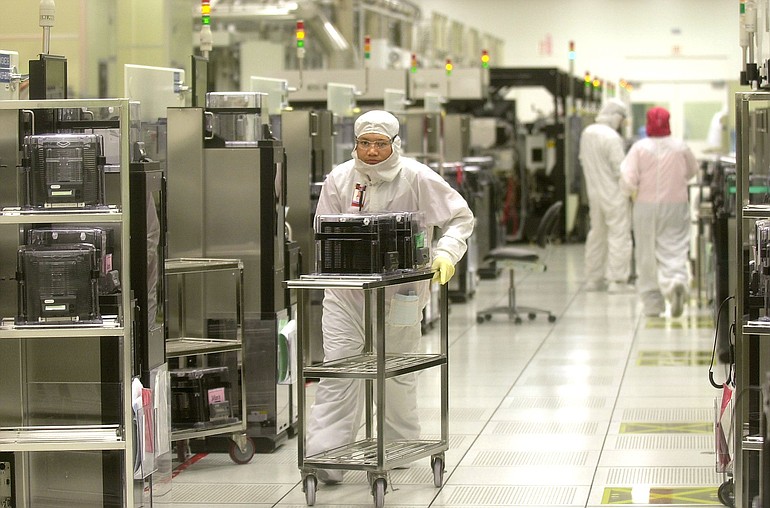o Previously: Semiconductor sales started to rebound in late 2009.
o What’s new: Clark County chipmakers are operating at full capacity again.
o What’s next: Companies in the semiconductor industry expect to bring back more temporary workers and may start hiring if the upward trend in sales continues.
Clark County semiconductor manufacturers are once again operating at full capacity after two years of falling orders, furloughs and layoffs, economic development officials and companies within the industry report.
The turnaround, which started in late 2009, is now nearing a steady pace as consumer demand returns for computers, mobile phones and other personal electronics.
“It has been a remarkable turnaround in the sector,” said Bart Phillips, president of the Columbia River Economic Development Council. “When the economy tanked, orders for new chips plummeted and plants were operating at 40 (percent) or 50 percent of capacity … That is no longer the case.”
Chipmakers are ramping up production in response to a general increase in global demand for their products. Though worldwide semiconductor sales were down 1.3 percent from the previous month at $22 billion in February, sales were up 56.2 percent from a year ago, according to a report released Monday by the Semiconductor Industry Association.
Higher productivity by chip manufacturers hasn’t yet created more jobs in Clark County, however.
Computer and electronic product manufacturing employment held steady in the first two months of 2010 at 2,800 workers both months, according to the Washington Employment Security Department. Overall, the sector was down 400 workers since February 2009, a year-over-year decline of 12.5 percent.
Companies are instead hiring temporary workers to meet their production needs, said Scott Bailey, Southwest Washington regional economist with Employment Security.
Chipmakers and related suppliers are remaining cautious about hiring permanent workers until they’re certain the recovery will stick.
WRS Materials, a silicon wafer recycling operation with 21 employees in Vancouver, has seen a 12 (percent) to 15 percent uptick in volume over the past three to four months, said general manager Fred Schiele. If wafer manufacturers keep the upward trend over the next few months, WRS plans to add another shift of four to five employees at its Vancouver facility, he said.
“What we’d rather do now is to work a little overtime just to make sure we’re reading the marketplace the right way,” said Schiele, of WRS Materials, a subsidiary of San Jose, Calif.-based Wafer Reclaim Services.
Kokusai, a semiconductor manufacturing equipment supplier in Vancouver, is also seeing increased demand from chipmakers for spare parts and technical service to help ramp up their capacity, said Rob Bernardi, president and chief operating officer. Once production reaches a steady level, he expects wafer factories to start ordering new equipment again.
As a result, Kokusai is expecting 15 percent sales growth in the next six months, but it’s bringing on temporary workers to fill the need, Bernardi said.
“When you come out of a dip like we just did, you want to be cautious,” he said. “We continue to watch our fixed costs, especially in the areas that are controllable such as labor and travel.”



